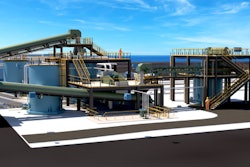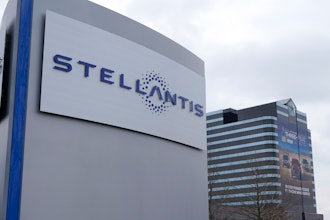ATLANTA (AP) -- Gov. Nathan Deal touted the state's efforts to lure manufacturing firms with its energy policy on Monday, saying a recent energy sales tax exemption has brought jobs to Georgia and that a stable supply in the state could bring more.
"All of us understand that Georgia has a great opportunity to restore itself as a manufacturing center in the United States," Deal said at a meeting of state and business leaders involved in an initiative to develop economic development strategies and make recommendations to the General Assembly.
Last year, state lawmakers approved a plan that eliminated the energy sales tax on manufacturing plants. At the time, only 14 states added the sales tax onto the utility bills of manufacturing plants. Deal said removing that burden has had a direct hand in companies deciding to move to Georgia or expanding operations in the state.
"We have to take advantage of continuing to be a state that offers affordable energy that will allow us to be competitive in the marketplace by way of costs, because in manufacturing that is a huge component of overall expenditures," Deal said.
The Republican governor said Georgia has opportunities to draw firms from Japan and Germany, where there is some uncertainty about energy supply. Germany has decided to move away from nuclear power, and Deal said he believes that's a reason why some German companies are looking to move to Georgia.
In Japan, Deal said the country is still dealing with the fallout from the March 2011 disaster at the Fukushima nuclear plant.
"This is a nation that if they do not have the nuclear power, they become a nation that has to import their energy," Deal said. "The opportunities that present themselves to a state like Georgia, if we do what we can to keep our energy costs reasonable and low by comparison ... we are in a prime position to continue to attract some of the manufacturing efforts that may have been traditionally in Japan."
Alan Essig of the Georgia Budget & Policy Institute said in a statement that Georgia should set up a better process for reviewing tax breaks and criticized the governor's Georgia Competitiveness Initiative, which brings state economic development officials and business leaders together to review state tax breaks and make recommendations.
"It is certainly true that Georgia's Swiss cheese tax code should be given a thorough review," Essig said. "State taxpayers spend nearly $300 million each year on tax credits for economic development, with almost no knowledge of what they're getting in return. But handing over authority to an unelected business council is the wrong way to fix that problem."
During his speech, Deal mentioned the two nuclear reactors under construction at the Plant Vogtle site in east Georgia, and said he planned to tour the facility later Monday. The costs, however, associated with the nuclear expansion in Georgia have prompted debate over who will pay for cost overruns.
Earlier, Deal had said it would be a "good solution" if Southern Co. could absorb more of the costs. On Monday, he said those comments were taken "a little bit beyond what I said," saying he only believes it's a viable issue to discuss. He praised Georgia Power executives for working with the state Public Service Commission.
"The truth of the matter is that nuclear facilities are very expensive. And the truth of the matter is that they provide very long-term benefits; they're spread over many, many decades," Deal said. "You have to take that all into account."
Associated Press writer Ray Henry in Atlanta contributed to this report.






















